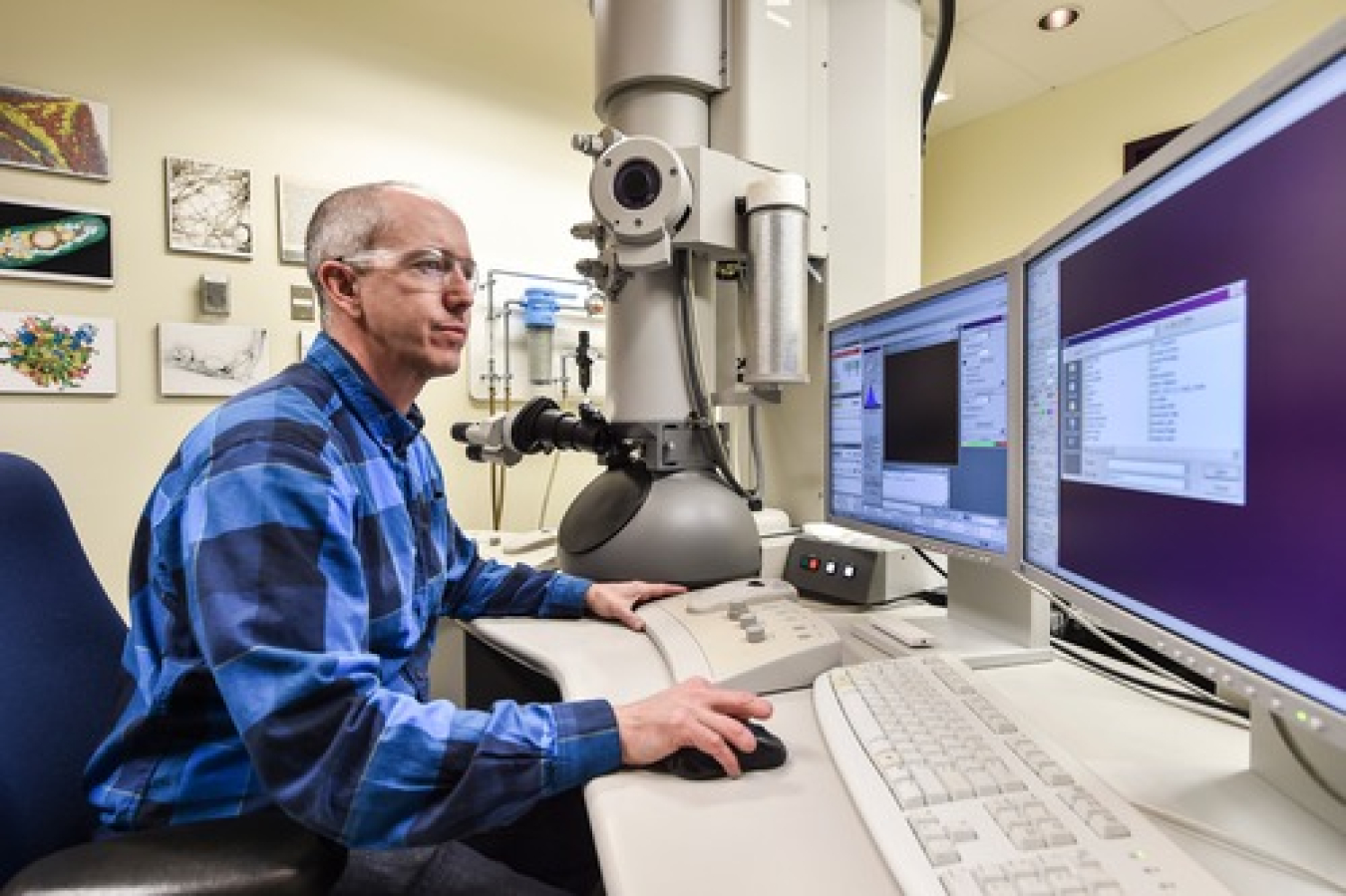
The Feedstock-Conversion Interface Consortium (FCIC) is working to understand the root causes of variability in biomass resources and feedstocks.
Approach
FCIC researchers employ a multiscale approach to define and quantify variability in biomass feedstock physical, mechanical, and chemical attributes. It aims to understand how the structural and physicochemical attributes of cell wall architecture and tissue structure underpin flow behavior and mechanical and thermochemical deconstruction in biomass conversion.
Outcome

A researcher uses advanced imaging to gain insight into plant cell wall architecture and biomass deconstruction. Photo from Dennis Schroeder/National Renewable Energy Laboratory.
FCIC researchers strive to provide information, data, and tools that facilitate a better understanding of the range of biomass material attributes and how feedstock preprocessing can modify variability with well-defined critical material attributes for conversion.
Impact
Currently, the biomass industry lacks data to understand biomass critical material and quality attributes. This includes magnitude, range, and distribution along with their impact on integrated feeding, preprocessing, and conversion. Therefore, industry will benefit from this fundamental knowledge by overcoming failures caused by feedstock variability.
Contact
For more information, contact the FCIC.
Other FCIC Research and Capabilities
Learn about all of FCIC’s research areas and capabilities/facilities.

